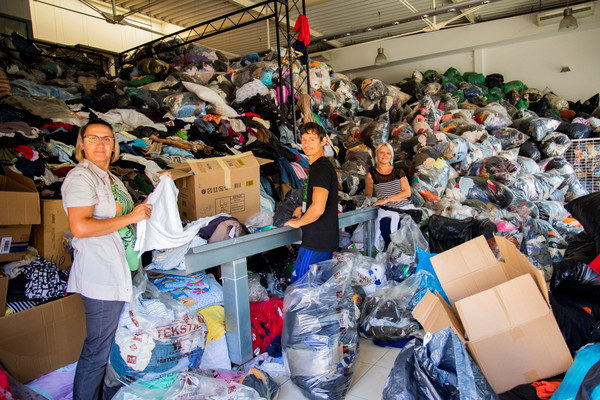On the job training course for sorting, reuse, recycling textile and felt packaging: Humana Nova

Name of practice: On the job training course for sorting, reuse, recycling textile and felt packaging
Organisation: Social Cooperative Humana Nova
Description of the Organisation: The Social Cooperative Humana Nova was founded in 2011. Since then, it has employed people with disabilities and other marginalised groups in the textile area. Employees help to create new quality and innovative products using discarded textile items. Humana Nova undertakes several areas of activities include textile collection, classification, processing, design, and creation. Through the promotion of social inclusion and validated work integration models, it contributes to creating a more tolerant society, protecting the environment by reusing and recycling textile waste.
Country: Čakovec, Croatia
Funding: The training process for persons with disabilities has been co-financed by the Croatian Employment Service and Humana Nova. However, the nature of the sustainable business model allows it to be financed by operating in the market.
Link to UNCRPD: Article 27 – Work and employment
Description of Practice: The first step of the process involves gathering textiles and separating them into usable and unusable textile. With the support of Regeneracija Zabok, the usable textile is recycled into the final product – felt. In 2020, Humana Nova established the felt packaging process which has allowed Humana Nova to increase opportunities for marginalised groups and persons with disabilities. Introduction trainings into the work process are offered. These trainings are adapted to each person (disability, age, nationality, level of education and life challenges) and help them to be more competitive in the job market, by developing working skills, habits, self-confidence, and motivation for the job
Impact and Sustainability: Empowering people with disabilities, helping them to develop working and social skills and integrating them in the labour market improves their quality of life. Aiming to reduce stereotypes and increase the opportunity for the integration of persons with disabilities, the trainings also include continuous support, counselling from a mentor, cooperation with families to solve employee’s problems and other institutions. The working integration model is complemented with the sustainable business model of Humana Nova. Feedback is continuously gathered from employees through primary research (interviews and surveys) to improve the quality of the services.
Scalability & transferability: Humana Nova operates according to the triple bottom line model, guided equally by environmental, social and economic goals. Given that the challenges of employment of marginalised groups and textile waste are also challenges in other geographical areas, the model is easy to replicate but also in other contexts if a balance is established within all business processes.
Contact Information: Karolina Kraljić, Human Resources, Humana Nova

